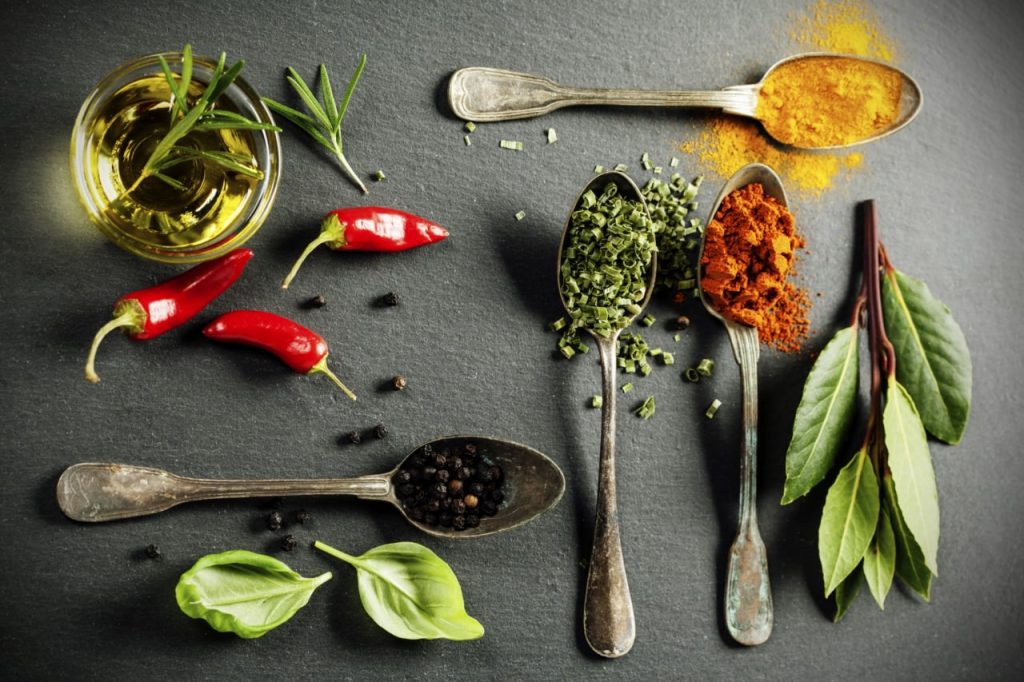Spices and herbs are differentiated botanically based on their sources of different plant parts. Herbs come from leafy green parts of plants, such as mint and basil, while spices are obtained from barks, stems, roots, flowers, fruit and seeds, such as cinnamon and ginger. Spices and herbs are commonly used as natural tenderizers for meats and seasonings to enhance flavours of soup, meat, vegetables, and drinks, but did you know they also provide significant health benefits?
Spices and herbs are rich in healthy phytonutrient compounds such as antioxidants, essential oils, vitamins, and minerals, which are essential for overall health for a number of reasons. Spices and herbs are the most antioxidant-dense dietary source of antioxidants. They have various health promoting benefits, such as anti-inflammatory, anti-bacterial, anti-blood-clotting, anti-flatulent, carminative and wound-healing properties, and the great antioxidant power helps to prevent oxidative stress-related diseases. Studies have researched the potential effects of spices and herbs on diabetes, inflammation, hyperlipidemia and hypertension in humans.
Some commonly used spices and herbs are given below. Check out their health benefits and explore recipe ideas (as well as the recipes seen here) to introduce spices and herbs into your diet.

Basil
Health Benefits:
Studies show that basil helps to normalize cortisol levels and has anti-stress effects. Antioxidant compounds protect chromosomes from free radicals, and its volatile oils have anti-bacterial and analgesic properties.
Recipes:
- Add the chopped fresh basil to fresh salads
- Add into cold pasta dish and dress with extra virgin olive oil
- Put whole leaves on slices of tomato with mozzarella
- Add dried basil at the very end of cooking to impart flavour (stir fries, pasta sauces)
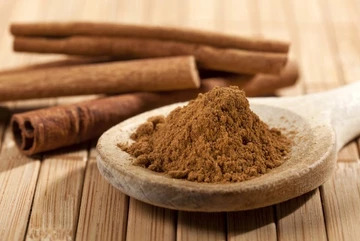
Cinnamon
Health Benefits:
Cinnamon has been found to slow gastric emptying and reduce rise in blood sugar after a meal. It has been studied for potential benefits in Type 2 Diabetes, Poly Cystic Ovarian Syndrome and boosting cognitive functioning. Cinnamon can be used as a “warming” spice with ginger at the first sign of a respiratory infection. Its volatile oils have anti-fungal and antibacterial effects.
Recipes:
- Roast root vegetables with cinnamon
- Add to warm or cold breakfast cereal
- Add cinnamon quill to beef or vegetable stews (or lentil soup)
- Sprinkle cinnamon on fruit
- Mix cinnamon with mint and parsley and add in burgers or meatloaf
- Make a rub for meat with equal parts of cinnamon, cardamom, and black pepper
- Mix into grains (rice, quinoa)
- Add to warm drinks (tea, cocoa)
Note: Cassia Cinnamon contains coumarins which can cause liver damage in some susceptible individuals. Coumarin content ranges from 0.1mg - 6.8 mg/gram in common brands. European Food Safety Authority found tolerable daily intake of coumarin to be 0.1 mg per kg.
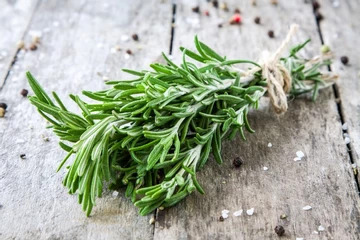
Rosemary
Health Benefits:
Rosemary contains a special blend of antioxidants (rosemarinic acid, carsonic acid, and carnosol) and has a more potent antioxidant power than man-made antioxidants. Studies has shown that rosemary can lower cortisol levels when inhaled and improve memory. It also helps to decrease the carcinogenic heterocyclic amines created by high temperature cooking when used as marinade or added to meats.
Recipes:
- Add to egg scrambles, omelets, and frittatas
- Season chicken, lamb, and fish by placing a sprig under the meat
- Add to tomato soups and sauces
- Add to scones, biscuits, and breads
- Puree fresh leaves with olive oil and use as a dipping sauce
- Infuse a rosemary stalk in vinegar
- Use to flavor roasted vegetables and nuts
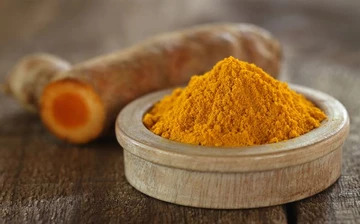
Turmeric
Health Benefits:
Studies have shown that turmeric has potent antioxidant and anti-inflammatory power due to the compound curcumin. Turmeric has been found to have benefits for cancer and osteoarthritis. Its use in Alzheimer’s, cardiovascular disease, Parkinson’s, Inflammatory Bowel Disease, and depression is under study.
Recipes:
- Add to sautéed or roasted vegetables
- Add to rice or pilaf
- Add to scrambled eggs and frittatas
- Add to braised greens like kale or cabbage
- Use as flavoring in curry and coconut dishes
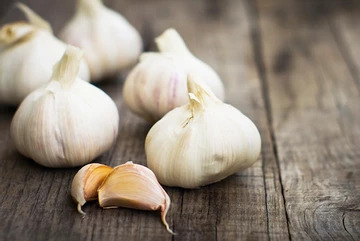
Garlic
Health Benefits:
Meta-analysis showed that those with highest consumption of garlic had lower risk of colon cancer, atherosclerosis and cardiovascular disease. Garlic also helps to lower triglycerides, total cholesterol and blood pressure, and has anti-bacterial and anti-viral effects.
Recipes:
- Stuff cloves into roasts and other meat dishes
- Slice fresh garlic into extra virgin olive oil to use in marinade, dipping sauce, salad dressing
- Puree roasted garlic, cooked potatoes and olive oil for garlic mashed potatoes
- Stud garlic cloves in thick eggplant slices and sprinkle with coriander, ground ginger, and grill until tender
- Add to soups and stews
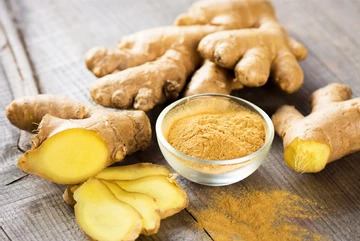
Ginger
Health Benefits:
Ginger has been found to benefit osteoarthritis, migraine, and gastrointestinal complaints such as motion sickness, nausea and vomiting. Ginger is also a “warming” spice and can be used in respiratory infections.
Recipes:
- Add grated ginger to vegetable stir fries
- Rub into meat for flavor and to tenderize
- Grate into melted butter and serve as a sauce with shellfish
- Add ginger and orange juice to pureed sweet potatoes
- Add to lemonade or hot cider

